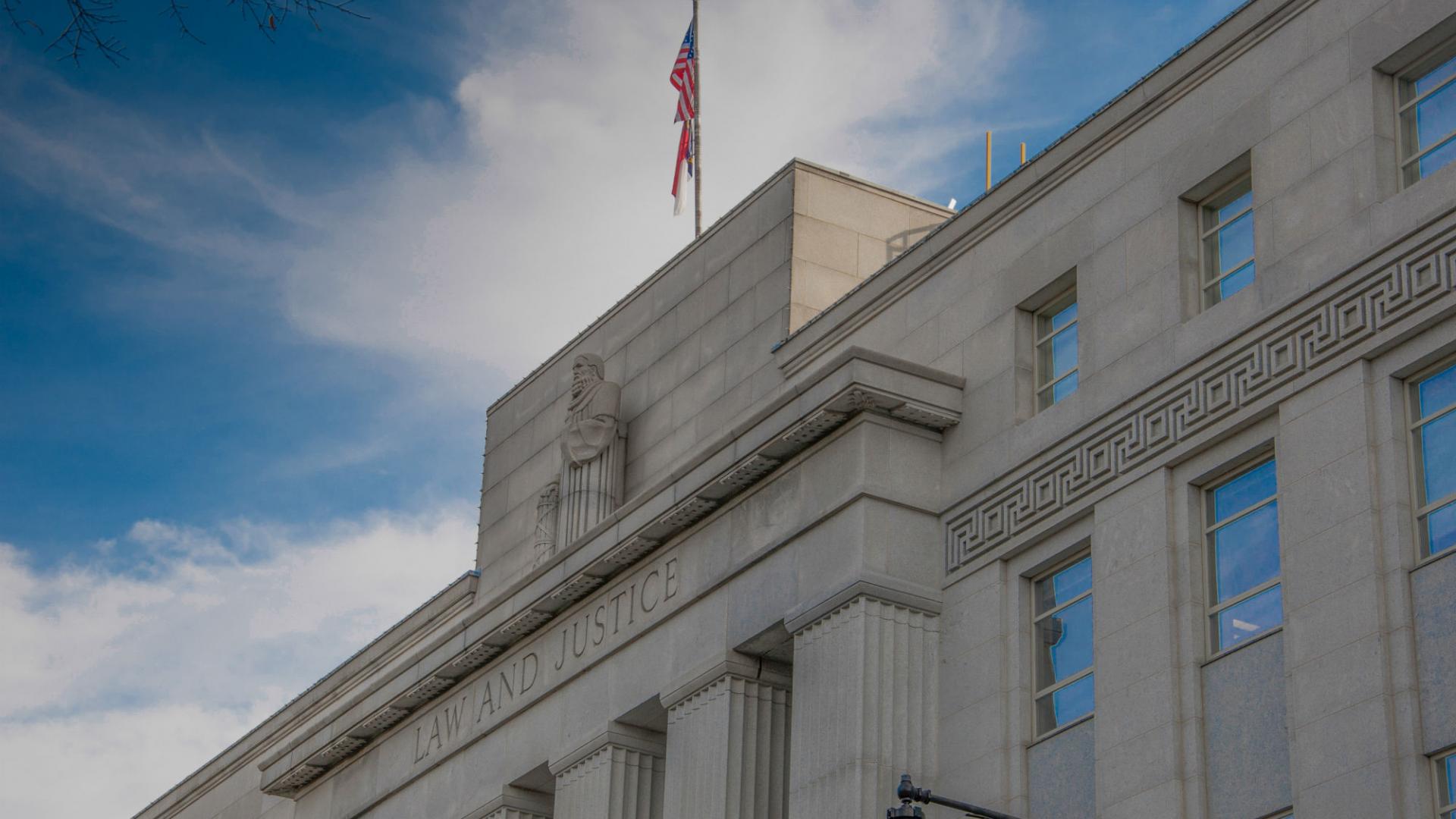North Carolina civil rights leaders are threatening to sue the state over a recently passed law that allows mostly white communities near Charlotte to create their own charter schools and a potential new voter ID law.
“Legislating state sponsored discrimination cannot continue without consequences,” North Carolina NAACP President T. Anthony Spearman said at a Monday news conference.
Spearman called this year’s General Assembly the “suppression session.” He said his organization will join with fellow civil rights group Color of Change to urge Apple and Amazon not to put new campuses near Raleigh because of the proposals.
The charter school law passed last week without Democratic Gov. Roy Cooper’s signature because it is a local bill. It allows the mostly white and well-off Charlotte-area communities of Matthews, Mint Hill, Huntersville and Cornelius to apply to create charter schools outside Charlotte’s system.
The Charlotte branch of the National Association for the Advancement of Colored People held its own news conference last week to speak out against that bill.
“Lawmakers in Raleigh are taking us back to the future with unambiguous school segregation as state policy. But we cannot sit ideally by and let legislators take us back to the ’40s and ’50s. I’m not going back,” former Charlotte-Mecklenburg School Board Chairman Arthur Griffin said.
Supporters of the charter school bill said Charlotte’s school system has been unable to fix overcrowding in the rapidly growing suburbs and the proposal gives them some local control over schools.
The voter ID proposal is a constructional amendment proposed last week by House Republicans. If passed by the General Assembly, the amendment would go before voters in November.
The Republican-controlled General Assembly passed a photo ID law in 2013, but a federal appeals court determined three years later that the mandate and other voting restrictions were passed with discriminatory intent targeting black residents.
Spearman said that amendment if passed should also be struck down.
“Do not compromise the rights of people of color and the poor,” Spearman said.
Related Stories
‹

NC Justices Examine Legality of Voter ID, Tax AmendmentsWritten by GARY D. ROBERTSON More litigation on voting, redistricting and race reached North Carolina’s Supreme Court on Monday, as justices began deciding if two constitutional amendments should be struck down because lawmakers who put them on the ballot were elected thanks to distorted district boundaries. The state Supreme Court heard oral arguments in a […]

After Recusal Delays, NC Court Hears Amendments Case Feb. 14North Carolina’s highest court has rescheduled oral arguments for next month in a case over whether two amendments to the state constitution should be voided because legislators who approved the ballot referendums were elected from racially biased districts. The state Supreme Court announced that litigation filed by the NAACP will be heard in its courtroom the […]
![]()
Split North Carolina Appeals Court Retains 2 AmendmentsA North Carolina appeals court panel overturned on Tuesday a court ruling that voided alterations to the state constitution because legislators who put referendums on the ballot were elected from racially biased districts. The challenge to actions by the Republican-dominated General Assembly is not over after the split decision by the Court of Appeals and […]
![]()
NAACP, NC Lawyers Oppose GOP Attempt to Restore Voter ID NowIt’s too late to restore a photo identification requirement to vote in North Carolina for the March primary, attorneys for the state and the NAACP wrote separately on Friday, opposing efforts by Republicans to suspend a judge’s order blocking the requirement. The State Board of Elections — a defendant in a lawsuit challenging the 2018 […]
![]()
"Sordid History" Cited as Judge Blocks NC's Voter ID LawThe federal judge who blocked the newest version of North Carolina’s voter identification law cited the state’s “sordid history of racial discrimination and voter suppression” as she ordered officials not to enforce the law in 2020. U.S. District Court Judge Loretta Biggs’ decision was released Tuesday and prevents North Carolina from requiring voters to provide […]
![]()
Federal Court to Block NC Voter ID Requirements for 2020 PrimariesU.S. District Judge Loretta Biggs gave advanced notice ahead of her official ruling next week by a written release. Indications are she announced her plan to grant an injunction to prevent information packets about the voter ID requirement being sent out by the State Board of Elections. The amendment was slated to go into effect […]
![]()
Ex-NAACP Leader ‘Deeply Sorry,’ but Denies Sexual AssaultA former North Carolina NAACP leader has softened his denial of sexual misconduct accusations, saying that while he never intentionally harassed anyone, he realized his actions “may have been received as sexual.” In a written statement to The Associated Press, the Rev. Curtis Gatewood said he was “deeply sorry” for the way his actions were […]
![]()
NAACP Suspends NC Candidate Over Sexual Harassment ClaimThe national NAACP said Thursday that it has suspended a candidate for president of the North Carolina chapter over sexual harassment claims made against him by a former employee. In a statement posted on its website, the Baltimore-based organization said the Rev. Curtis Gatewood was suspended Thursday from membership immediately pending a hearing into the […]
![]()
Poor People's Campaign Continues in North Carolina Ahead of National RallyFor the fifth week in a row, citizens involved with the Poor People’s Campaign were arrested at North Carolina’s legislative building last week. Participants gathered in the building to disrupt a Senate meeting while some sat in House Speaker Tim Moore’s office to protest. Others stayed out in the street, holding signs and calling for […]
![]()
NAACP Threatens Lawsuits Over Charter School and Voter IDNorth Carolina civil rights leaders are threatening to sue the state over a recently passed law that allows mostly white communities near Charlotte to create their own charter schools and a potential new voter ID law. “Legislating state sponsored discrimination cannot continue without consequences,” North Carolina NAACP President T. Anthony Spearman said at a Monday […]
›



